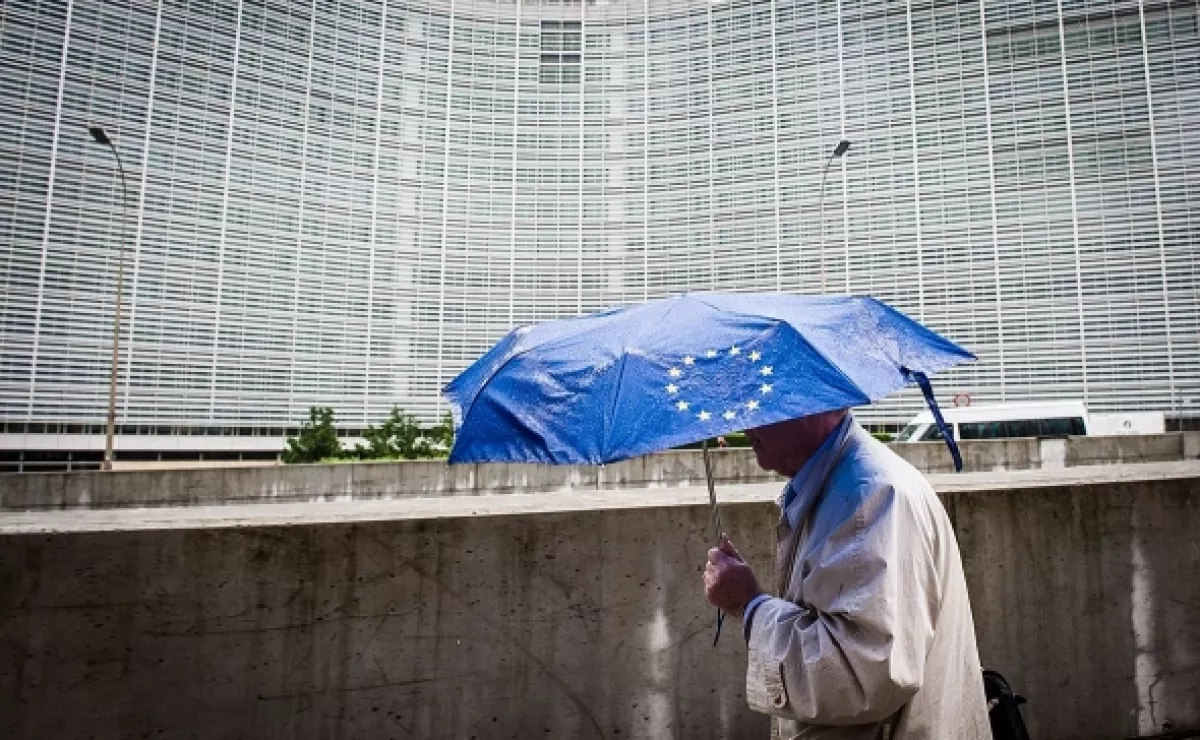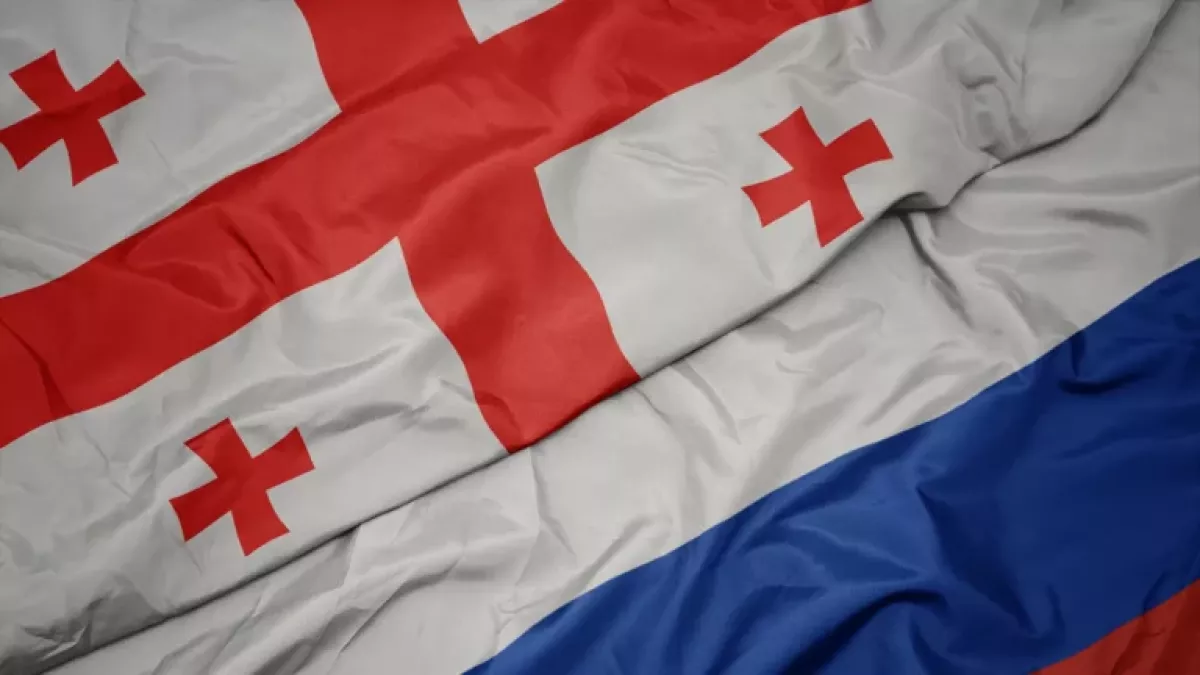Georgia’s ticket to Europe — with no boarding time By Vladimir Tskhvediani
On 4 November 2025, the European Commission presented its annual Enlargement Report, assessing the progress of ten candidate countries for EU membership. The majority received positive evaluations, with the notable exception of Georgia, whose authorities were sharply criticised by Brussels for “serious democratic backsliding.”

“Montenegro, Albania, Ukraine, the Republic of Moldova, Serbia, North Macedonia, Bosnia and Herzegovina, Kosovo, Türkiye and Georgia continue their respective paths towards the EU. The pace of their reforms, in particular in the areas of democracy, the rule of law and fundamental rights, directly impacts the speed of accession,” the European Commission’s press release stated.
The order in which the candidate countries were listed is telling. Georgia was mentioned last — after Türkiye. This is a clear signal from Brussels: if Georgia is ever admitted to the EU, it will happen only after Türkiye. The logic is simple — among Georgia’s neighbours, only Türkiye and Russia share a border with the European Union, but as is well known, Moscow has no intention of joining the EU.
Türkiye has held candidate status for EU membership for 26 years — since 1999 — having submitted its application back in 1987. At the same time, the country is a NATO member and possesses a strong, self-sufficient economy.
If Georgia, which obtained candidate status in 2023, advances toward membership at the same “pace” as Türkiye, the issue of accession will simply lose relevance by the middle of the current century. That is precisely why the Georgian authorities are in no hurry to sacrifice national sovereignty and abandon traditional values for the sake of a distant, illusory prospect offered by Brussels.
Moreover, on 4 November 2025, EU Commissioner for Enlargement Marta Kos stated that new member states could be admitted on a “trial basis” for several years and later expelled from the bloc in case of backsliding on “democratic values.”

“I don’t want to go down as the commissioner bringing in the Trojan horses who will be then active in five, 10 or 15 years. We need this discussion and we shouldn’t be afraid of it,” Marta Kos emphasised.
By “Trojan horses,” the Commissioner was clearly referring to Hungary and Slovakia — both full members of the EU that today openly defend their national interests and refuse to take part in the “pan-European campaign” against Georgia. Her words also contained an unmistakable hint directed at Tbilisi: even after a hypothetical EU accession, Georgia could be kept in a “suspended state” for years and, if necessary, “shown the door” by united Europe. For instance, if — like Hungary — it refuses to fully renounce its sovereignty and blindly follow Brussels’ directives.
This raises a natural question: should Georgia and its people even aspire to such a humiliating form of “semi-membership” in the EU?
Meanwhile, the European Commission continues to speak to Georgia in the language of ultimatums — a tone that is clearly reflected in the latest Enlargement Report.

“In 2024, the European Council concluded that Georgia's EU accession process was de facto halted. Since then, the situation has sharply deteriorated, with serious democratic backsliding marked by a rapid erosion of the rule of law and severe restrictions on fundamental rights. This includes legislation severely limiting civic space, undermining freedom of expression and assembly, and violating the principle of non-discrimination. Georgian authorities need to urgently reverse their democratic backsliding and undertake comprehensive and tangible efforts to address outstanding concerns and key reforms supported by cross-party cooperation and civic engagement, in line with EU values. Following the December 2024 European Council Conclusions and in light of Georgia's continued backsliding, the Commission considers Georgia a candidate country in name only. The Georgian authorities must demonstrate resolute commitment to reverse course and return to the EU accession path,” the European Commission press release stated.
At the same time, the report acknowledges that despite criticism from the EU and the Georgian government’s reluctance to follow Brussels’ directives, Georgia’s economy is growing faster than that of any other candidate country.
The most notable GDP growth was recorded in Georgia (9.4%), followed by Kosovo (4.4%) and North Macedonia (2.8%). Serbia (3.9%) and Albania (4%) maintained growth rates similar to the previous year, the document noted.

It is obvious that if the Georgian authorities had complied with all the EU’s demands and entered into open confrontation with Russia, the country’s economy would not be showing such impressive results. Russia remains one of Georgia’s key foreign economic partners, and the potential opening of a “second front” against Moscow — something both the EU and the “pro-European” opposition had been urging Tbilisi to do — would have been disastrous for transit along the Middle Corridor, which today underpins Georgia’s record-breaking economic growth.
One of the main drivers of this growth is tourism, led predominantly by visitors from non-EU countries — primarily Russian citizens. Between January and September 2025, 1.25 million Russian tourists visited Georgia, a 12% increase compared to the same period in 2024. Russian visitors spent around $560 million in the country, making the largest contribution to tourism revenues, which totalled $3.64 billion over the first three quarters of the year. Türkiye ranked second ($454.2 million), followed by Israel ($430.4 million). It is clear that such an impressive tourism boom in Georgia would not have occurred had Brussels’ desired “revolutionary victory” — and the subsequent war with the opening of a “second front” — taken place.
By Vladimir Tskhvediani, Georgia, exclusively for Caliber.Az








